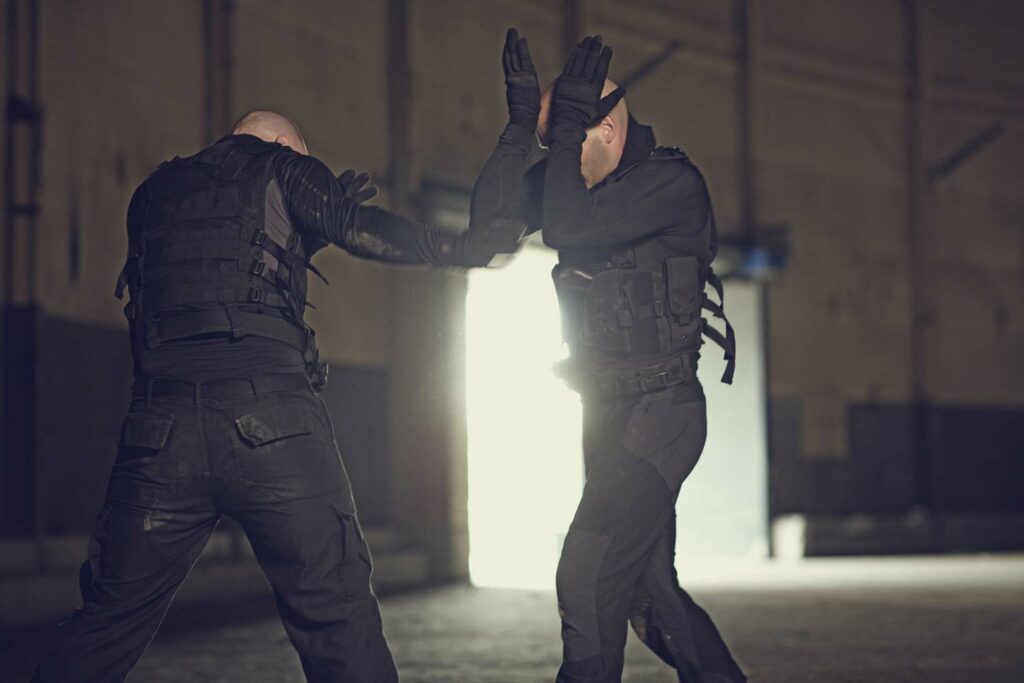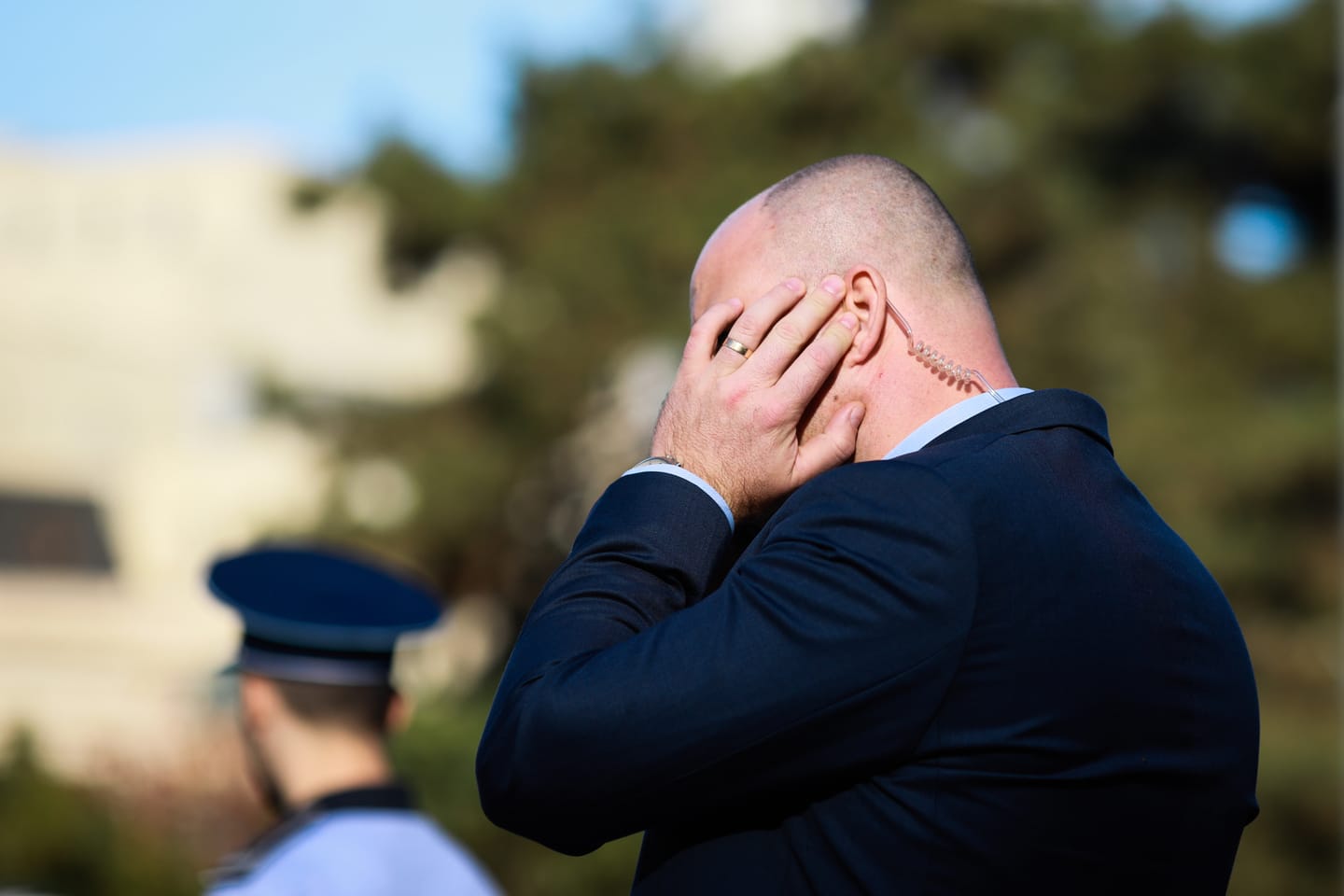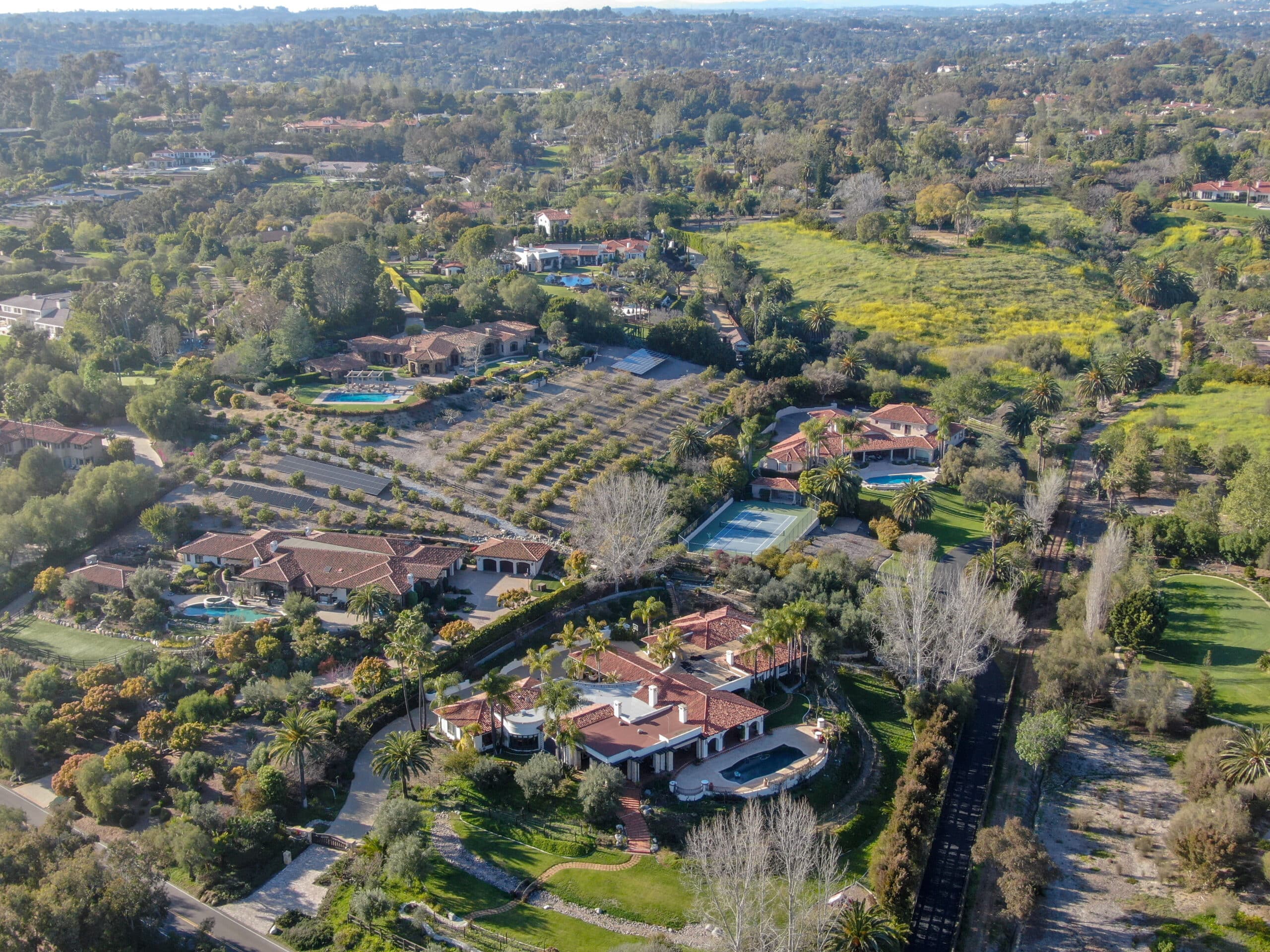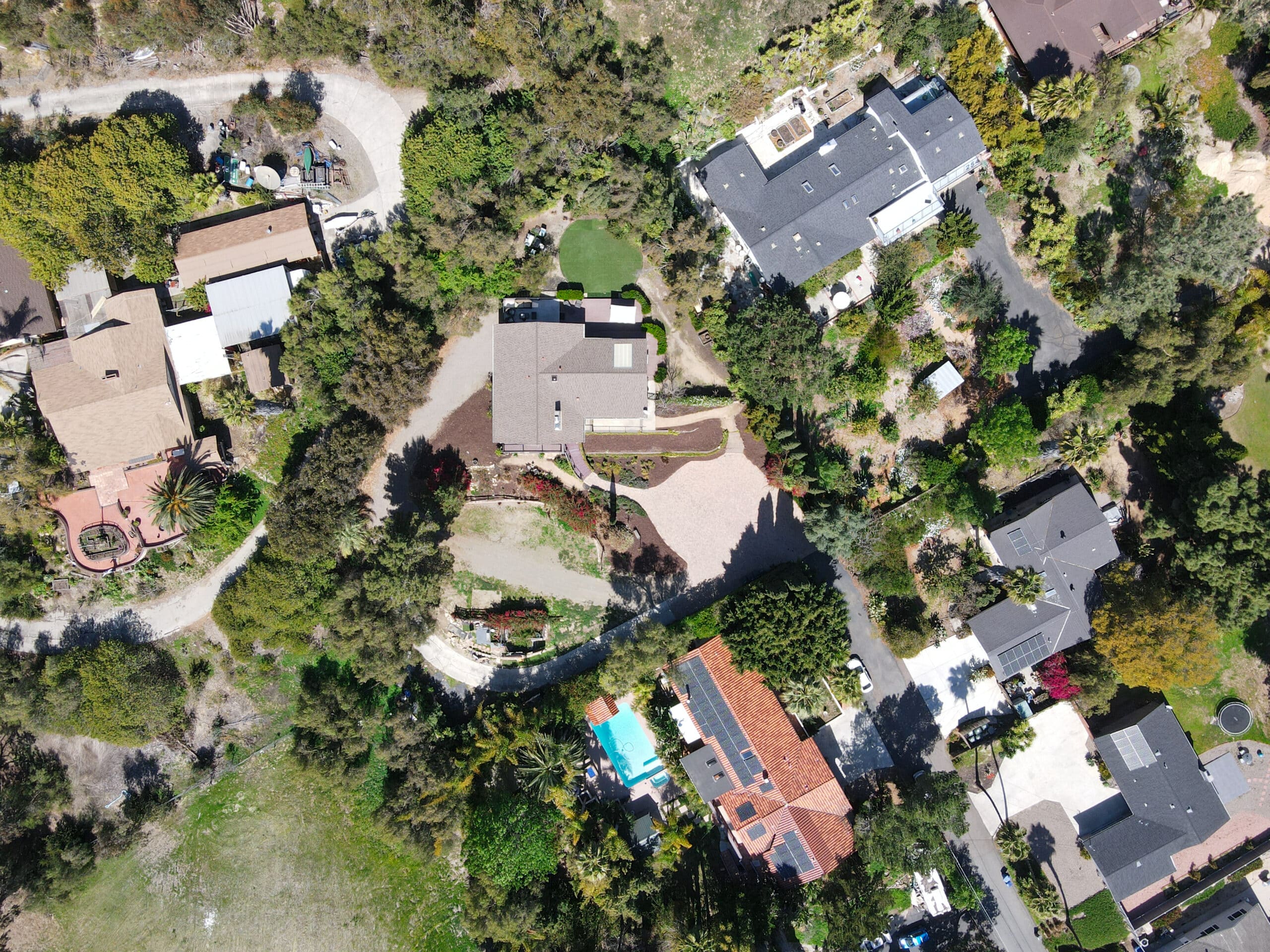Estimated reading time: 15 minutes
In the complex tapestry of modern security needs, the role of bodyguards remains critically pivotal. This comprehensive exploration delves into the nuanced spectrum of bodyguard specializations, dissecting their distinct roles, expertise, and the contexts in which they operate. From the rigorous discipline of executive protection agents to the vigilant eyes of personal security officers and the dynamic world of celebrity bodyguards, this article is a profound examination aimed at demystifying personal protection services.
Table of contents
- The Executive Protection Agent: Defining Corporate Security
- Personal Security Officers: Guardians of Individual Safety
- Celebrity Bodyguards: Masters of High-Profile Protection
- Diplomatic Security Agents: Safeguarding International Relations
- High-Risk Operation Specialists: Experts in Hostile Environments
- Protective Surveillance Specialists: The Art of Covert Security
- Residential Security Experts: Fortifying Personal Sanctuaries
- Event Security Coordinators: Orchestrating Safety in Public Venues
- Maritime Security Operators: Safeguarding Nautical Ventures
- Cybersecurity Specialists: Guardians of Digital Realms
- Conclusion
The Executive Protection Agent: Defining Corporate Security
Role and Responsibilities of an Executive Protection Agent
An Executive Protection Agent is the bulwark against any threats to high-ranking corporate executives in corporate security. Their role extends beyond physical protection; it encompasses a comprehensive understanding of the corporate landscape, the executive’s profile, and potential risk factors. These agents are trained to identify threats preemptively, meticulously plan travel routes, and ensure a secure environment for the executive in transit and stationary locations. The agent’s role is a fusion of vigilance and discretion, providing the executive’s safety without impeding their daily business operations.
Training and Skills Required for Executive Protection
Executive Protection Agents are the epitome of professionalism and preparedness. Their rigorous training regimen encompasses advanced driving skills, emergency first-aid, crisis management, and cyber-security measures. They are often well-versed in martial arts and firearm usage, although the emphasis is always on de-escalation and preventive measures. Beyond physical capabilities, these agents are trained in subtle arts such as behavioral analysis, situational awareness, and risk assessment. They are also skilled communicators, capable of liaising with law enforcement, corporate staff, and other security professionals.
Operational Environment and Challenges
The operational environment of an Executive Protection Agent is as dynamic as the corporate world itself. They may be required to navigate high-stress environments, from bustling city centers to international travel. Their work demands constant adaptability, quick decision-making, and absolute discretion. Challenges may include managing unforeseen threats, ensuring cybersecurity in an era of digital espionage, and maintaining a balance between stringent security measures and the executive’s need for a regular, unobtrusive lifestyle. The agent must master blending in while remaining highly alert for potential threats.
Personal Security Officers: Guardians of Individual Safety
Distinctive Role of Personal Security Officers
Personal Security Officers (PSOs) offer a more personalized layer of protection, typically assigned to individuals who may not have a high public profile but require close-quarters security due to their occupation, personal threats, or other risk factors. Unlike their corporate counterparts, PSOs often work closer to their clients, offering a shield of privacy and safety in various settings. Their role involves physical protection and a profound understanding of their client’s routine, preferences, and social environment. The PSO’s presence prevents potential threats, ensuring clients can peacefully conduct their personal and professional lives.
Specialized Training and Skill Set of PSOs
The training of Personal Security Officers is intensive, focusing on personal defense, threat assessment, and situational awareness. They are adept in unarmed combat and, where legal, using personal defense weapons. PSOs are also trained in advanced driving techniques and emergency response and often have a background in medical training to address any immediate health emergencies. Emotional intelligence is crucial; they must be perceptive to the needs and comfort of their client, ensuring security measures are as unobtrusive as possible. Their training also involves understanding the legalities surrounding personal protection and the use of force.
Navigating the Challenges: A PSO’s Perspective
The challenges faced by Personal Security Officers are unique. They operate near their clients, often blurring the lines between professional and personal life. They must be adept at reading social situations, recognizing potential threats in various forms, and taking discreet yet effective measures to neutralize them. Balancing the client’s privacy, comfort, and lifestyle with the uncompromised need for security is delicate. They must be vigilant yet invisible, assertive yet polite, and always prepared for the unexpected. The PSO’s role is not just to react to direct threats but to anticipate and prevent them, ensuring the safety and well-being of the client at all times.
Celebrity Bodyguards: Masters of High-Profile Protection
Unique Demands of Celebrity Protection
Celebrity bodyguards operate in the high-stakes world of public figures and entertainment luminaries. Their role is multifaceted, involving the physical protection of the celebrity and the management of their public interactions. These bodyguards must be adept at crowd control, managing fervent fans, and dealing with paparazzi. The unpredictable nature of public appearances and the need to maintain a particular public image make this role particularly challenging. A Celebrity bodyguard must ensure their client can keep their public life without compromising their safety or personal space.
Training Regimen and Essential Skills for Celebrity Bodyguards
Celebrity bodyguards are often selected for their imposing physical presence, but their skills run much more profound. They undergo rigorous personal protection, crowd management, and emergency response training. Their expertise includes advanced driving, first aid, and, often, close combat skills. Public relations play a significant role in their training, as they must handle interactions with fans and media tactfully, ensuring their client’s image remains untarnished. The ability to quickly assess and neutralize threats in crowded and chaotic environments is paramount. They must also be proficient in using technology for security planning and communication.
Balancing Fame and Safety: The Celebrity Bodyguard Challenge
The biggest challenge for a celebrity bodyguard is balancing the need for public exposure with the imperative of security. They must navigate throngs of admirers, intrusive media, and public events while maintaining a vigilant guard against potential threats. The high visibility of their clients often attracts not just fans but also undue attention from overzealous admirers or individuals with malicious intent. Celebrity bodyguards must be masters of discretion, ensuring their protective measures do not overshadow or impede the celebrity’s public interactions or lifestyle. They are the unseen shield, operating in the limelight yet often unnoticed, ensuring the safety and peace of their high-profile clients.
Diplomatic Security Agents: Safeguarding International Relations
The Crucial Role of Diplomatic Security Agents
Diplomatic Security Agents hold a unique position, protecting the integrity of a nation’s international relations. They provide security for diplomats, ambassadors, and foreign dignitaries in their home country and abroad. The role extends beyond personal protection; it encompasses the safety of diplomatic compounds, sensitive documents, and communication channels. These agents are aware that any security breach could have significant political ramifications. They are the silent sentinels, ensuring that diplomatic engagements proceed without intimidation or threat, facilitating smooth international relations.
Comprehensive Training and Expertise
The training of Diplomatic Security Agents is extensive, covering aspects of personal protection, emergency response, and the security of physical and digital assets. They are well-versed in international law, diplomatic protocols, and the nuances of cross-cultural communication. Their training includes advanced risk assessment, surveillance detection, and counterintelligence measures. Proficiency in multiple languages is often a requirement, enabling seamless communication in diverse environments. These agents are also trained in cybersecurity, understanding that threats to diplomatic security can be as much digital as they are physical.
Navigating the International Terrain
The operational environment of a Diplomatic Security Agent is as varied as the geopolitical landscape. They might find themselves in stable, friendly nations or regions fraught with tension. Their work requires a keen understanding of the political climate, cultural norms, and local security apparatus. They must be adept at forming liaisons with local law enforcement and security agencies, ensuring a collaborative approach to the safety of their protectees. The challenge lies in maintaining a high level of security without compromising the diplomatic mission’s approachability and openness to foster international dialogue and cooperation.
High-Risk Operation Specialists: Experts in Hostile Environments

Defining the Role in High-Risk Scenarios
High-Risk Operation Specialists are the epitome of resilience and bravery, often deployed in unpredictable and dangerous environments. Their clientele may include journalists in conflict zones, corporate executives in unstable regions, or individuals involved in high-stakes negotiations. These specialists are not just bodyguards; they are strategic planners adept at navigating through hostile territories, ensuring their client’s safety in situations where the risk of kidnapping, terrorist attacks, or political unrest is high. Their presence provides security, allowing clients to focus on their mission, even in perilous conditions.
Rigorous Training and Survival Skills
The training regimen for High-Risk Operation Specialists is intense and all-encompassing. It includes advanced combat training, tactical driving, and survival skills in hostile environments. These specialists are trained to handle various weaponry, emergency medical procedures, and crisis negotiation techniques. They are also skilled in situational awareness, threat assessment, and rapid decision-making under pressure. Their training is continually updated to adapt to threats and scenarios, ensuring they are prepared for any situation.
Overcoming Challenges in Hostile Territories
Operating in hostile territories presents a spectrum of challenges. High-Risk Operation Specialists must constantly be on high alert, ready to respond to any threat swiftly and efficiently. They must understand the local culture, socio-political dynamics, and terrain to navigate safely and make informed decisions. Their work often involves coordinating with local authorities, understanding insurgent tactics, and ensuring secure communication channels. The mental and physical demands of operating in such environments are immense, requiring robust training, resilience, adaptability, and an unwavering commitment to their client’s safety.
Protective Surveillance Specialists: The Art of Covert Security
The Unseen Shield: Protective Surveillance in Action
Protective Surveillance Specialists operate on providing security through obscurity and subtlety. Their role is to form an invisible barrier around the client, often without the client or potential threats being aware of their presence. This method is particularly effective for clients who require a low profile or for situations where overt security could escalate risks. Specialists in this domain are experts in blending in, constantly monitoring their surroundings, and recognizing signs of potential threats. Their work involves maintaining a discreet distance while being close enough to intervene if the situation demands it.
Specialized Training for Covert Operations
The training of Protective Surveillance Specialists is highly specialized, focusing on skills such as covert surveillance, counter-surveillance, and advanced situational awareness. They are trained to detect surveillance attempts by others, ensuring that their client is not being followed or monitored by potential adversaries. Their expertise includes understanding human behavior, crowd dynamics, and the subtle nuances of non-verbal communication. They are also skilled in using technology for surveillance, including advanced optics, audio surveillance, and GPS tracking, while ensuring their methods are discreet and non-invasive.
Navigating the Challenges of Invisibility
The primary challenge for Protective Surveillance Specialists is to remain invisible while ensuring unwavering vigilance. They must constantly adapt to their environment, changing their appearance and blending with different crowds. Their work requires patience, sharp observation skills, and the ability to make rapid decisions without drawing attention to themselves. Balancing the client’s normalcy with the unseen, omnipresent layer of security is a complex task. These specialists must be prepared to swiftly transition from a passive monitoring role to an active protective role if a threat materializes, all while maintaining their cover.
Residential Security Experts: Fortifying Personal Sanctuaries
Ensuring Safety Beyond the Public Eye
Residential Security Experts specialize in creating a secure and safe haven for individuals in their private residences. Their focus is to fortify the personal sanctuaries of their clients, ensuring that their homes are impervious to intrusions, threats, or any form of unauthorized access. These experts conduct thorough risk assessments, identify potential vulnerabilities, and implement comprehensive security measures. They work closely with their clients to understand their specific needs and preferences, ensuring that the security protocols align with their lifestyle and provide peace of mind without being overly intrusive.
Advanced Systems and Tailored Solutions
The expertise of Residential Security Experts extends to the mastery of advanced security technology. They are adept in installing and managing state-of-the-art surveillance systems, alarm systems, access control mechanisms, and perimeter defenses. Their holistic approach integrates physical security measures with advanced cybersecurity protocols to protect against digital intrusions. They also provide bespoke solutions, understanding that each residence has unique challenges and requirements. Their solutions are reactive and proactive, employing measures like security audits and regular updates to stay ahead of emerging threats.
Navigating the Privacy-Security Paradox
One of the significant challenges faced by Residential Security Experts is balancing robust security measures with the privacy and comfort of the client. While the residence is fortified against threats, it must ensure it feels like a home, not a fortress. This requires a nuanced approach, integrating security features seamlessly into the home’s design and functioning. They must be discreet, ensuring that the presence of security measures is felt but not obtrusive. The ability to offer customizable and scalable solutions, adapting to the changing needs and preferences of the client, is crucial in maintaining this balance.
Event Security Coordinators: Orchestrating Safety in Public Venues
The Strategic Art of Managing Public Events
Event Security Coordinators ensure safety and security during public events, concerts, conferences, sports events, or political rallies. Their role involves meticulous planning, coordination, and execution of security measures to manage large crowds and potential threats. They collaborate with event organizers, local law enforcement, and emergency services to create a comprehensive security strategy. This includes crowd control measures, access control, emergency response protocols, and contingency planning. Their presence and oversight ensure that the event proceeds smoothly and that disruptions are handled swiftly and efficiently.
Training and Skill Set for Effective Event Security
Event Security Coordinators are trained to anticipate and mitigate risks in dynamic, high-pressure environments. Their training covers crowd psychology, risk assessment, conflict resolution, and emergency management. They are adept at using advanced security technology, including surveillance systems, crowd-scanning devices, and communication networks. Their role demands excellent organizational skills, attention to detail, and the ability to make quick decisions. They must also be effective communicators, coordinating with various stakeholders and guiding their team during high-pressure situations.
Challenges in the Field of Event Security
Event Security Coordinators’ primary challenge is managing the unpredictable nature of large-scale events. They must be prepared for various scenarios, from medical emergencies and crowd disturbances to potential terrorist threats. Balancing the need for stringent security measures with the attendees’ experience is crucial; the security protocols should be thorough yet unobtrusive. They must also adapt to the specific requirements of each event, considering factors such as the venue, the profile of attendees, and the nature of the event. Ensuring the safety of thousands of individuals in a dynamic, often chaotic environment requires skill and preparation and the ability to remain calm and assertive under pressure.
Maritime Security Operators: Safeguarding Nautical Ventures
The Unique Domain of Maritime Security
Maritime Security Operators protect assets in the complex and often unpredictable maritime environment. Their responsibilities encompass the security of vessels, ports, and offshore facilities. These professionals are adept at navigating the challenges posed by the vastness of the oceans, the legal complexities of international waters, and the specific threats related to maritime activities such as piracy, smuggling, and terrorism. They ensure the safety of crew members, passengers, and cargo, maintaining the integrity of marine operations and the smooth flow of global commerce.
Specialized Training and Skills for Maritime Operations
Maritime Security Operators undergo rigorous training tailored to the maritime domain. This includes maritime law, ship hardening techniques, and boarding operations. They are proficient in using firearms and defensive tactics in close quarters. Their training also covers emergency medical response, survival skills in marine environments, and the operation of specialized equipment such as watercraft and communication devices. Understanding the nuances of maritime operations, such as navigation, weather patterns, and vessel engineering, is crucial for effective security planning and crisis management in this unique environment.
Navigating Challenges in the High Seas
The challenges faced by Maritime Security Operators are as vast as the oceans themselves. They must be prepared to operate in isolated, harsh environments, often with limited support and resources. The legal complexities of working in international waters require a deep understanding of international maritime law and the jurisdictions of different nations. They must be vigilant against various threats, from piracy and armed robbery to environmental hazards and geopolitical tensions. Effective communication and coordination with international organizations, shipping companies, and government agencies are essential for maintaining safety and responding effectively to incidents in this global and interconnected domain.
Cybersecurity Specialists: Guardians of Digital Realms
The Evolving Threat Landscape in Cybersecurity
Cybersecurity Specialists operate in the digital realm, a landscape constantly evolving with technological advancements and new forms of cyber threats. Their role is critical in safeguarding sensitive information, protecting digital assets, and ensuring the integrity of communication systems. These specialists are the first line of defense against cyber attacks, including hacking, phishing, ransomware, and espionage. They develop and implement robust security protocols, monitor networks for suspicious activities, and respond to incidents swiftly to mitigate damage and prevent future breaches.
Rigorous Training and Skillset for Cybersecurity Experts
The training of Cybersecurity Specialists is comprehensive and continually updated to keep pace with the rapidly changing threat landscape. It includes knowledge of computer systems, network architecture, encryption technologies, and the latest security software. These experts are proficient in risk assessment, penetration testing, and developing security policies and procedures. Their skill set also includes the ability to analyze large volumes of data, identify vulnerabilities, and devise strategies for cyber defense. Staying ahead of cybercriminals requires technical skills, creativity, problem-solving abilities, and a deep understanding of human behavior and motivations.
Navigating the Complexities of Digital Protection
Cybersecurity Specialists face the daunting task of protecting against an unseen and often unpredictable adversary. They must be vigilant, proactive, and prepared for the unexpected. The interconnected nature of digital networks means that threats can arise from any corner of the globe and have far-reaching consequences. Balancing the need for robust security measures with the requirements for user accessibility and system efficiency is a complex challenge. Cybersecurity is not just a technical issue; it involves educating users, developing a security-conscious culture within organizations, and staying compliant with legal and regulatory requirements. In an age where data is a valuable commodity, the role of the Cybersecurity Specialist is more crucial than ever.
Conclusion
In conclusion, bodyguards’ and security professionals’ diverse roles and specializations are critical in the modern, interconnected, and often perilous world, where they counteract many threats. These experts, from strategists safeguarding corporate executives to those protecting celebrities, bring unique skills and expertise appropriate for various environments, including corporate settings, maritime ventures, and cyberspace. Their responsibilities extend beyond preventing physical harm to protecting privacy, reputation, and sensitive information. United by the core principle of safeguarding human life and dignity, these professionals operate under high-stakes pressure. Their adaptability, foresight, and dedication form a bulwark against chaos, ensuring peace and stability. This often unseen effectiveness of security experts is vital for society to function, innovate, and thrive, reflecting the ongoing quest for peace and security in an unpredictable world.












